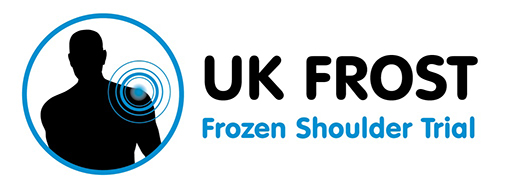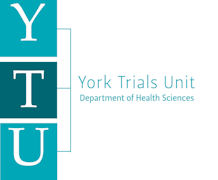
UK FROST:
United Kingdom Frozen Shoulder Trial
What is a frozen shoulder?
For most people Adhesive Capsulitis (known more commonly as 'frozen shoulder') is a self-limiting condition of approximately one to three years duration. It happens when the flexible tissue surrounding the shoulder joint (capsule) becomes inflamed and thickened, resulting in contraction (tightening) of the tissue and scarring. The shoulder then becomes very tight, painful and stiff which often can be extremely debilitating and interfere with people’s work, home and leisure activities.
What are the treatments?
Most people eventually get better, even without treatment. However, for around one in 10 patients the condition is more resistant and these patients are referred to hospital. Hospital treatment commonly involves the following interventions:
- Early Structured Physiotherapy (ESP), which includes education, general reassurance and advice and exercises to mobilise and stretch the tightened shoulder capsule. A steroid injection into the joint (intra-articular) can be used for pain relief.
- Manipulation Under Anaesthesia (MUA) where the shoulder is manipulated to stretch and tear the tight capsule under a general anaesthetic, therefore restoring a more normal range of movement to the shoulder. A steroid injection is again given for pain relief.
- Arthroscopic Capsular Release (ACR). This is keyhole surgery, again carried out under general anaesthetic. This is where the tight capsule is opened up through cutting out the thickened parts using high-frequency radio waves. Steroid injections are usually avoided after this surgery to reduce the risk of infection, and alternative methods of pain relief are offered.
There is limited evidence, however, on the clinical effectiveness of these treatments for the frozen shoulder.
What is the study?
Our research is a randomised controlled trial that will evaluate the clinical and cost-effectiveness of these three interventions. In addition, patient experiences of both the surgical interventions and ESP will be examined, providing important patient-centred insight to further guide clinical decision making.
If you would like to find out more about this study please contact:
Trial Manager: Dr Stephen Brealey (stephen.brealey@york.ac.uk).
Chief Investigator: Professor Amar Rangan (amar.rangan@york.ac.uk).
Animation of UK FROST Study Findings
UK FROST Publications

![]()
![]()



![]()
